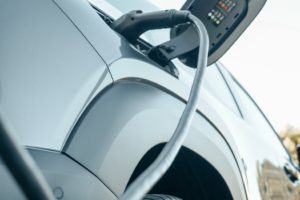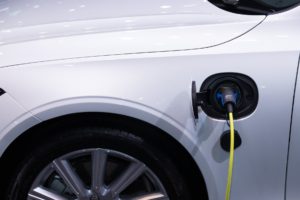I am a huge fan of our Tesla. I enjoy driving it and the performance shocks me every time I get in the car. In fact, the car has completely spoiled me. That being said, I think that we need to step back and examine who should go buy an EV and why.
Gas Pump Pain – Not a reason
I have become very concerned with the idea that people could be flocking to purchase electrical vehicles based on the current price of fuel. Gas prices have been known to fluctuate radically over the years. Of course, they are high right now and that creates pain for everyone. High gas prices impact far more than just how much we pay to drive our cars, but we’ll save that for another story.
I completely understand the interest in electric vehicles when gas prices shoot up. I considered buying a natural gas vehicle in the mid-2000s when gas prices last spiked. At that time, I was driving 30,000-40,000 miles per year, so I could easily justify the savings that a Honda Civic NG-based vehicle would offer.
Unfortunately, these types of decisions often become emotional decisions rather than logic-based decisions. Doing some simple math can help buyers truly understand what they’re getting into before they opt to do so.
Let’s assume that you currently have a car payment of $300 per month. According to my math, that would equate to having purchased a $15,000-$20,000 vehicle. Most EVs are currently selling for around $40,000. I know there are federal tax credits in place that bring this down, but that won’t apply if you purchase a Tesla which will actually run you about $47,000.
I’m going to assume a few things because I have to. First, the car you bought for around $15,000 is probably still worth nearly the same, but we will take the value down a hair to account for mileage. If you trade that car in I would estimate your new car payment would be closer to $400 per month.
Not that bad right? You’re getting a shiny new car, cutting your fuel expense and probably getting a reliability boost (for a while anyway). That all makes sense. There are likely to be a few hidden costs you haven’t considered.
First, you probably will want to charge at home. This one isn’t a huge expense, but it is real. You’re going to need an electrician and that will probably cost you $500 out of pocket from my experience. Let’s assume $100 a month in fuel savings (although a famous person recently said $80). That means in 5 months, you’ll begin breaking even between the price of your old car and your new car.
What about putting a tag on a $40,000 car? You’re going to pay sales tax as well. If you folded that into the car, I guess we can adjust the monthly expense upwards. If you didn’t, then we have to take that into account post-sale and figure you probably just dropped at least another $2,000-$2,500. So now we’re at 2 or more years before that gas savings becomes a thing.
Did you check on the price of insurance? Our experience was that EVs cost more per month to insure. In fact, it was a lot more. This will definitely vary from one provider to another, from one individual to another and even state to state. I’m not even going to take a swing on this, but insurance is a reality and many people make car purchases without considering it. Be sure you’re not that person.
Used Versus New
The lack of a used car market is a deterrent that needs to be considered by any car buyer. Many people never buy new cars. I know I’m one of those people. I often opt to buy something a few years old to get more features I want or a brand of vehicle I prefer. Buying new often pushes what I want out of the price range I’m comfortable with.
Electric vehicles do not have this option. Yes, you can buy a used Tesla. No, buying a used EV won’t save you much over buying a new one. Only a few companies have had an EV option available for more than a year or two and those cars are almost all insanely overpriced.
If you’re anything like me, buying an older car means is somewhat comforting. A lot of folks refuse to buy the first model year of any brand of car. If either of those scenarios describes you, buying an EV is just not an option.
Who does an EV make sense for then?
An EV makes sense under a lot of circumstances. I want to highlight a few of these because they’re important.
First, if you are in the market for a new car because it was time to buy one regardless, it makes sense to look at electric vehicles. In fact, you should look at EV’s first if a model that fits your lifestyle falls within your budget. If you were looking to spend around $40,000 on a car, then a Tesla Model 3 is probably an amazing solution.
If you are a technology enthusiast and love seeing your phone update or getting a new computer yearly, you probably should look at getting an EV. The cars behave more like a computer with wheels than a traditional automobile and that’s a great thing. Every few weeks, our Tesla gets new menus and features. It has even had new uses for the camera system since we got it. If this excites you, then jump on board.
If you are a person that gets reimbursed for mileage as part of your job, you probably can’t afford to not make the jump to an EV. The fact is, mileage pays $0.58 per mile driven and you can put a lot of that in your pocket. The more you drive, the more sense an EV might make (as long as you’re staying within the range of the battery or can charge when needed).
C9





